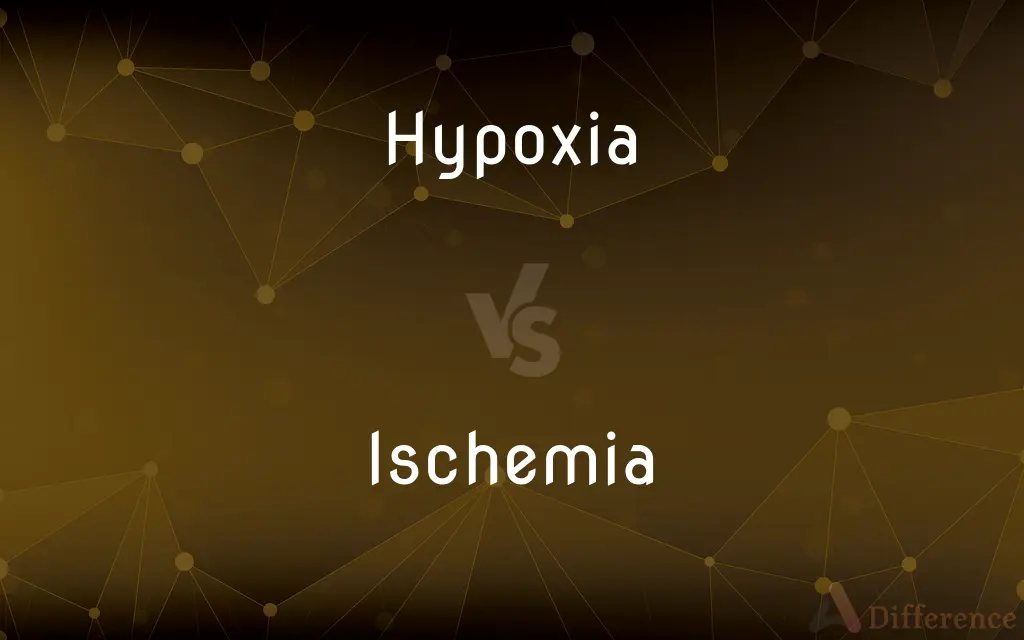Hypoxia vs. Ischemia — What's the Difference?

Difference Between Hypoxia and Ischemia
ADVERTISEMENT
Compare with Definitions
Hypoxia
Deficiency in the amount of oxygen reaching body tissues.
Ischemia
Ischemia or ischaemia is a restriction in blood supply to tissues, causing a shortage of oxygen that is needed for cellular metabolism (to keep tissue alive). Ischemia is generally caused by problems with blood vessels, with resultant damage to or dysfunction of tissue i.e.
Hypoxia
Depletion of dissolved oxygen in aquatic environments to levels that are detrimental or fatal to aerobic organisms, often caused by eutrophication.
Ischemia
A decrease in the blood supply to a bodily organ, tissue, or part caused by constriction or obstruction of the blood vessels.
Hypoxia
(pathology) A condition in which tissues (especially the blood) are deprived of an adequate supply of oxygen; anoxia
ADVERTISEMENT
Ischemia
Local disturbance in blood circulation due to mechanical obstruction of the blood supply (for example, embolism, thrombosis, or vasoconstriction).
Hypoxia
A reduced concentration of dissolved oxygen in an aquatic environment.
Ischemia
Local anemia in a given body part sometimes resulting from vasoconstriction or thrombosis or embolism
Hypoxia
A very strong drive resulting from a deficiency of available oxygen in the blood and bodily tissues (short of anoxia)
Share Your Discovery

Previous Comparison
College vs. School
Next Comparison
Frank vs. Frankly














































